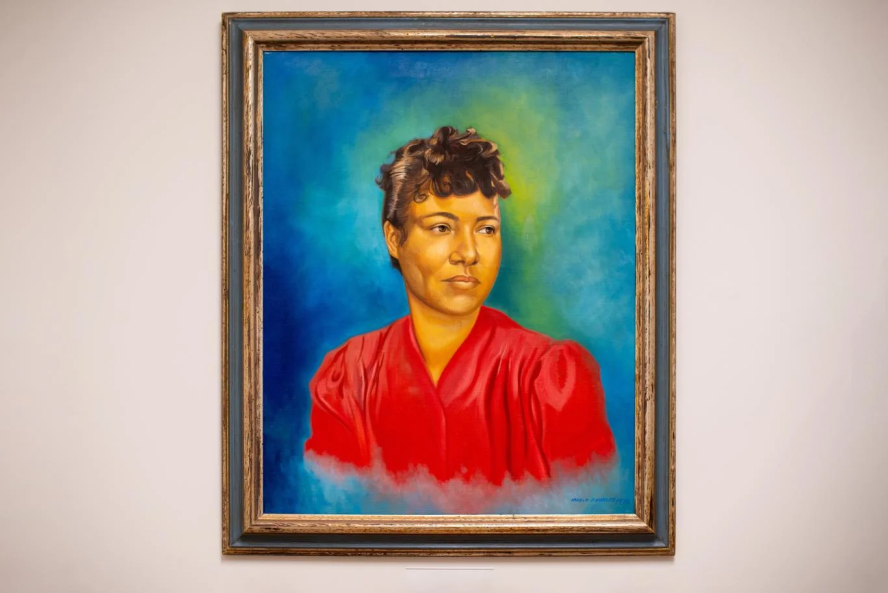-
About
- Departments & Offices
-
Academics
- Public Health
- Biomedical Sciences
- Physician Assistant
- Special Master’s (MBS)
-
Admissions & Financial Aid
- Tuition & Fees
-
Student Experience
-
- Student Resources by Program
- Academic & Student Support
- Wellness & Wellbeing
- Student Life
- Events & Traditions
-
-
Research
- Research Labs & Centers
- Tufts University-Tufts Medicine Research Enterprise
-
Local & Global Engagement
- Pathway & Enrichment Programs
- Global Health Programs
- Community Engagement
An Equal Rights Legacy that Continues to Support Medical Students
Ruth Marguerite Easterling, M1921, was one of the first Black female students at Tufts University School of Medicine and went on to become a celebrated pathologist.

In 1917 at the age of nineteen, Ruth Marguerite Easterling was admitted to Tufts University School of Medicine as one of it's first Black female students. An exceptional scholar, she graduated in 1921 and went on to become an accomplished pathologist. For a time, she worked with William Augustus Hinton, the physician who developed the Hinton test for syphilis, which became the most accurate blood serum test for the disease.
Easterling was born in Georgetown, South Carolina, in 1898, and was an only child. When she was young, her family moved to Cambridge, Massachusetts, where Easterling lived for most of her life. After graduating from high school, she attended Jackson College, which was then the women’s sister college to Tufts University in Medford, majoring in pre-med. She received her MD from Tufts School of Medicine in 1921 and moved to New York to do her internship at Metropolitan Hospital, a municipal facility on what is now Roosevelt Island.
As a pathologist, Easterling was affiliated with Beth Israel Hospital in Boston. She conducted research on tuberculosis with John B. West, considered one of the world’s most noted respiratory physiologists, and they published some of their findings in 1939. After serving on the staff of the Tuskegee Veterans Administration Hospital in Tuskegee, Alabama, for a time, Easterling returned to Cambridge to become director of the laboratories at the Cambridge Massachusetts City Hospital.
“As a medical student and then as a medical professional, Ruth Easterling was a trailblazer,” said Damian Archer, assistant dean for multicultural affairs and clinical assistant professor at the School of Medicine. “Her legacy serves as an example and a reminder for our students that they have the potential to not only make new discoveries but to change the system to reduce health disparities for a more equitable future.”
Easterling was a strong supporter of equal rights for women and for all people. In an undated newspaper op-ed entitled “The Declaration of Independence,” she expressed her thoughts on the matter.
“Equal rights means the right to be a full human being—and it is a human right—not the prerogative of one sex, one kind of person, or any one group in the community,” Easterling wrote. “It involves the freedom of a human being to realize her own best capacities. Woman is a unique individual who happens to be female. Equal rights, like civil rights, include the right to be different and the right to cultivate the difference, without regard to sex or race. We must cultivate a human sensitivity and an expanding social identification so that whatever contributes to our own sense of dignity and worth will be goals we seek for others.”
Easterling died of breast cancer in 1943, at the age of 45. The speaker of the Massachusetts House of Representatives and the Cambridge city manager drafted letters of condolence to her parents, praising her work for the city and the state.
More than 80 years after her graduation from the School of Medicine, Easterling continues to inspire medical students through the Dr. Ruth M. Easterling Scholarship, established by the Tufts Progressive Alliance of Minority Students organization in 1979.
Recipients of the scholarship have demonstrated leadership and commitment in community service and have engaged in activities that positively affect medically underserved populations. In 2023, two alumni, Bailee Cooper, M23, and Winston Bell, M23, were awarded the Easterling scholarship.
“Dr. Easterling was a revolutionary,” said Bell. “While the demographics in our medical spaces continue to have major progress to achieve, the ability for our voices to be heard is because Black doctors like Dr. Easterling created a path for us. The changes I was able to effect at TUSM are likely in response to work Dr. Easterling began many years prior and my gratitude is forever present.”